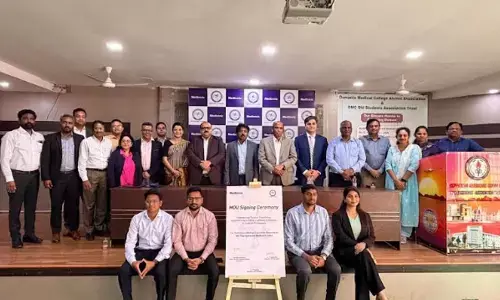Rajasthan overshoots solar power investment target

Armed with amendments to labour laws and a new solar energy policy, Rajasthan has attracted more investment interest than it targetted for solar power capacity.
Armed with amendments to labour laws and a new solar energy policy, Rajasthan has attracted more investment interest than it targetted for solar power capacity.
.jpg)
"After Vasundhara Raje government announced an investor-friendly solar power policy a few months back, we have seen interest among investors growing towards the state," Minister of State for Energy Pushpendra Singh told IANS on Wednesday.
Singh said that Chief Minister Raje fixed a solar power production target of 25,000 MW in the state over the next few years. But the interest shown has overshot that figure.
According to state government officials, till the second week of March, memoranda of understanding (MOU) were signed with various companies, including Sun Edison and Azure Power, for production of 14,000 MW of solar power.
Similarly MOUs or joint venture agreements for developing 26,000 MW in solar parks have been signed with Adani Enterprises, Reliance Power, IL&FS and Essel Infra Projects, among others.
Earlier this year, the chief minister told a CII Partnership Summit in Jaipur: "We are committed to making Rajasthan a business-friendly state and have taken several steps in that direction."
This included changes in the labour laws. "We are committed to simplifying and rationalising regulations, policies and laws," she said.
Raje announced changes in the solar power policy in October 2014 aimed at easing the norms for setting up such plants on private lands.
Land-holders were allowed to set up solar power project on their holding or sub-let the holding for such projects without the requirement of land conversion in accordance with the Rajasthan Tenancy Act, 1955, and the Rajasthan Land Revenue Act, 1956.
Further, solar power producers were allowed to purchase private lands for setting up such plants even in excess of the ceiling limit provided under the law.
Also, the government land could be alloted to such producers at lower than market rate. Solar power plants have also been brought under the Green Category by the state Pollution Control Board.
The BJP-ruled state has pushed through the labour reforms despite opposition from trade unions, including the Bharatiya Mazdoor Sangh, which is affiliated to the Rashtriya Swayamsevak Sangh (RSS). Madhya Pradesh has followed the example of Rajasthan in changing its labour laws.
Under the amended Industrial Disputes Act, 1947, companies will now have to seek government approval if they seek to retrench 300 or more workers, instead of 100 workers earlier.
Any dispute under labour laws would now have to be resolved within three years. The unions' power has been partially curtailled by requiring that for a union to register, it will have to show support of 30 per cent of the workforce, up from 15 per cent until now.
Next Story

















